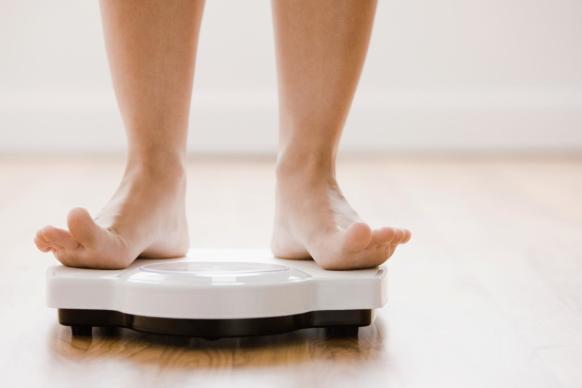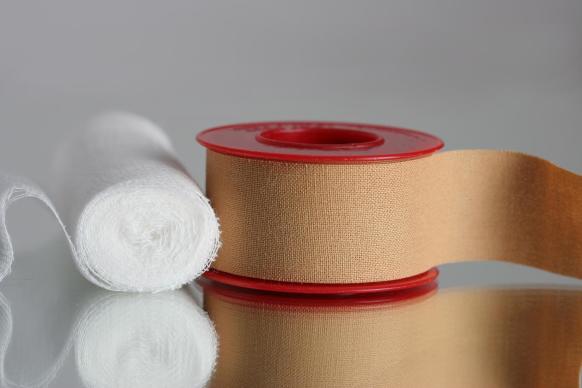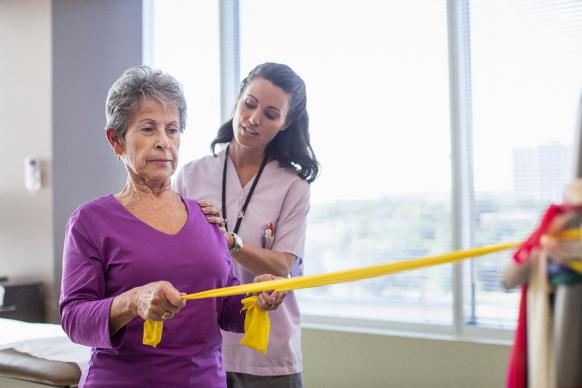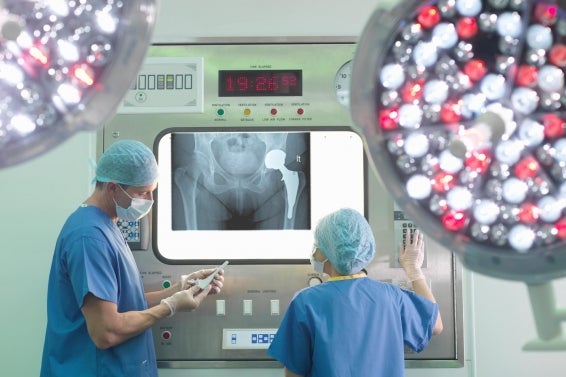View Providers

Prepare before surgery and know what to expect.
Hip replacement surgery is a major operation. However, it
can be the path back to a full, active life. That's often the case for people
who have broken a hip or have severe arthritis. It can also help those who have
other hip conditions that limit their ability to function day to day. If you
decide to have this procedure, you'll want to get the most benefit possible.
So, start planning for your recovery before you ever have the operation.

1. Lose any excess weight.
Being overweight or obese can make recovery from
hip replacement surgery more difficult. Excess weight also raises the risk of something
going wrong with your hip replacement. Extra pounds will put more strain and
stress on your new hip joint. Focus on eating healthy and exercising as much as
you can before the surgery. Work with your doctor if you struggle in this area.

2. Improve your health in general.
Take good care of yourself in the months and
weeks leading up to your surgery. For example, it’s important that your skin be
clear and free of any irritation or infection. If you need dental work,
schedule it well before your surgery to be sure you have no oral infection.
However, put off routine visits for dental exams and cleanings until you've
recovered. Maintain your medication schedule for other health conditions. But,
be sure to go over everything you take with your surgeon. You might need to
stop some drugs before the day of the surgery.

3. Do some "redecorating."
Try to make it easier to move around at home
after your surgery. You might want to move some furniture and rugs out of the
way for awhile. If you don't have a first-floor bedroom, consider sleeping in
the living room to avoid stairs. This is also the perfect time to remove
clutter and any tripping hazards.

4. Arrange for help.
The road to recovery after hip replacement
surgery can take time. In the meantime, you'll need some help. Ask in advance.
For starters, make sure someone can drive you home from the hospital. Then, you
may need help with chores, shopping, cooking, bathing, and other daily
activities. Friends and family might be able to set up a schedule for handling
duties. A temporary aide is an option if you don't have loved ones nearby.

5. Take care of your incision.
A critical part of your recovery involves
keeping your incision clean and dry. This is one of the primary things you'll
need to take care of during your recovery. You will want to avoid getting it
wet. You'll also need to change your bandages. Carefully follow your surgeon's
instructions about this. You want to make sure your incision heals properly and
does not get infected.

6. Watch out for complications.
Complications can set back your recovery. Be
vigilant. Keep an eye out for problem signs like worsening pain or unusual
bleeding. Other signs of trouble include fluid leaking from your incision,
swelling, and fever. If you suspect anything, contact your doctor right away.
Early treatment of problems is important.

7. Work with a physical therapist.
After your surgery, you will need to learn to
walk and move with your new hip. A physical therapist can help you with this.
It’s very important to keep your physical therapy appointments. Following the
therapist’s directions closely will help you gain strength. It will also help
you regain the ability to move around again. As the weeks go by, you should be able
to get back to many basic household activities.

8. Exercise carefully.
Exercise is an important part of recovering from
hip replacement surgery. However, you’ll want to approach it slowly and with
caution. You don't want to reinjure yourself. Follow the specific exercises
that your physical therapist suggests. This will put you on the best road to
recovery.




